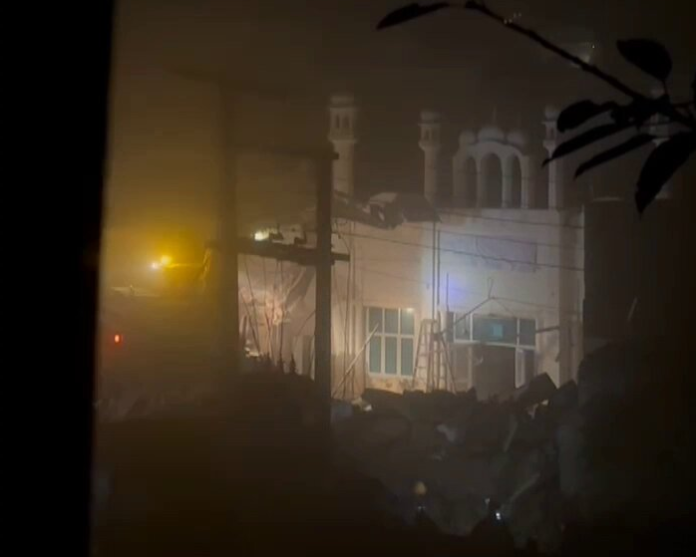In a controversial act on the night of January 16–17, 2025, authorities in Daska demolished a historic Ahmadi place of worship. This mosque, built before 1947 by Muhammad Zafrullah Khan, a prominent leader in Pakistan’s independence movement, held profound historical and spiritual significance for the Ahmadi community.
The mosque, commissioned by Zafrullah Khan—a diplomat and one of Pakistan’s founding fathers—was a symbol of the Ahmadi community’s resilience and faith. Its destruction marks a grim chapter in the ongoing persecution faced by Ahmadis in Pakistan.
Ahmadis have long endured systemic discrimination, including legal restrictions that prevent them from practicing their faith openly. Desecration of graves, destruction of places of worship, and denial of basic civil rights are part of the persistent hostility they face, which often goes unaddressed by the state.
This incident highlights a broader trend of religious intolerance in Pakistan, where the government has declared Ahmadis as non-Muslims in the constitution. The demolition of this historic mosque in Daska underscores the escalating persecution of the community.
The act sparked widespread condemnation on social media, with many calling it a violation of human rights and religious freedom. Critics argue that such actions tarnish the legacy of a nation built on the principles of justice and inclusion.
For the Ahmadi community, the loss of this sacred place is a profound tragedy. The question now is how much longer the world will remain silent in the face of such blatant violations of religious freedom. This demolition is not merely a loss for Ahmadis but a stark reminder of the urgent need for global advocacy for tolerance and human dignity.









































